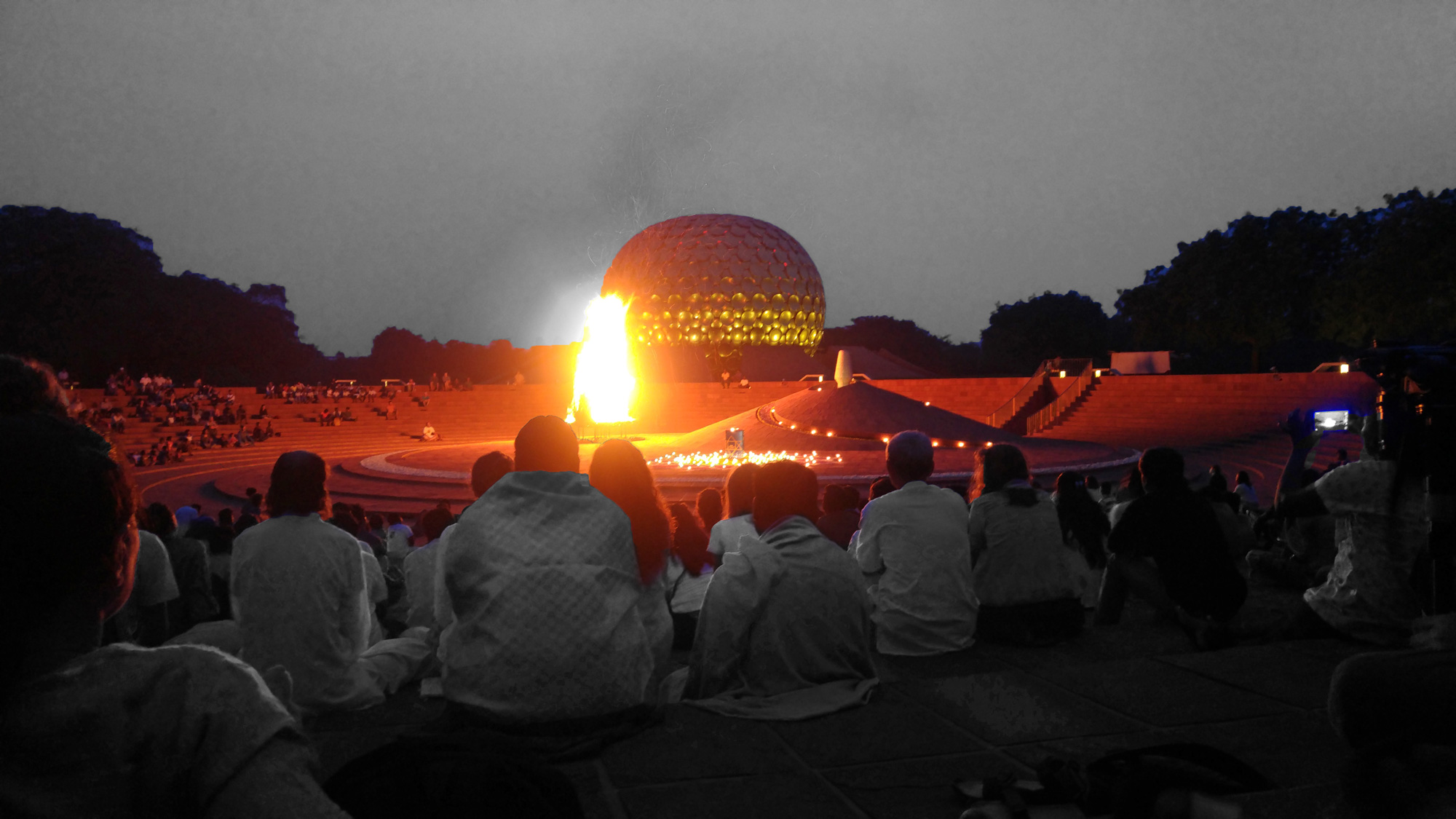A couple of years ago, I shared a series of posts on my time in Auroville, an international village in South India. Before my month in the experimental township I spent a few days exploring Kolkata, which is in North India. As it was my second time in India itself, the culture was familiar to me.
There is something about India that captivates me. My heart is drawn to the country. The culture is one of abundance. There is so much on offer: the scents, the streets, the vocals of the locals, the colours. Notably this abundance is a stark alternative to that of the West.
Both streets boast motorised chaos. Both cultures centre around cuisine. In the West, however, we create these picture-perfect places for consumption. In the East, aestheticism is not the aim. The streets are lined with markets, foods, aromas, that stimulate the senses. The over-saturation and grunge is overwhelming in comparison with the minimalism and clean-cut ways of the West. Yet the Indian cuisine maintains substance over the superficial.

Of course, these are massive generalisations, but we can compare shared qualities. Traffic. Cuisine. Streets. People. Religion. None of these are unique, but their manifestation is varied. In density. In diversity. Particularly, the rich religiosity of the culture is confronting, coming from the West. The prevalence of spiritual practice seen in the public sphere is unparalleled.
On those Kolkata streets, I remember seeing some crosses among the temples and gods of Eastern beliefs (e.g. Hinduism, Sikhism, Buddhism). I was excited to see the crosses, but in my watercolour journal I wrote:
what they don’t tell you about indian christianity:
today i have seen the most crosses yet
churches are planted everywhere
but
the faith is not exclusive
there is a hybrid, DIY-style spirituality
What I started to see, from the very beginning of my journey, was that the Christianity I knew from my Western upbringing was not the Christianity I was witnessing in Eastern living. My second time in the country may not have been as overwhelming due to cultural familiarity, but what deeply challenged and confronted me was the spirituality. The spiritual oppression I encountered the first time I went to India almost prevented me from returning. I was scared to see it again. I dismissed the thought of applying for a second global studio, because I did not want to expose myself any more despair or spiritual darkness … but in the end, I did.
In did not want to remain in my sheltered Christian belief system. I wanted to be open, still holding to my beliefs, but not dismissing the presence of other spiritual forces. So, I prayed. In hindsight, I can see my faith was strengthened; but at the time, my prayer felt unanswered. I came away from that season in a dark place; burdened and concerned .
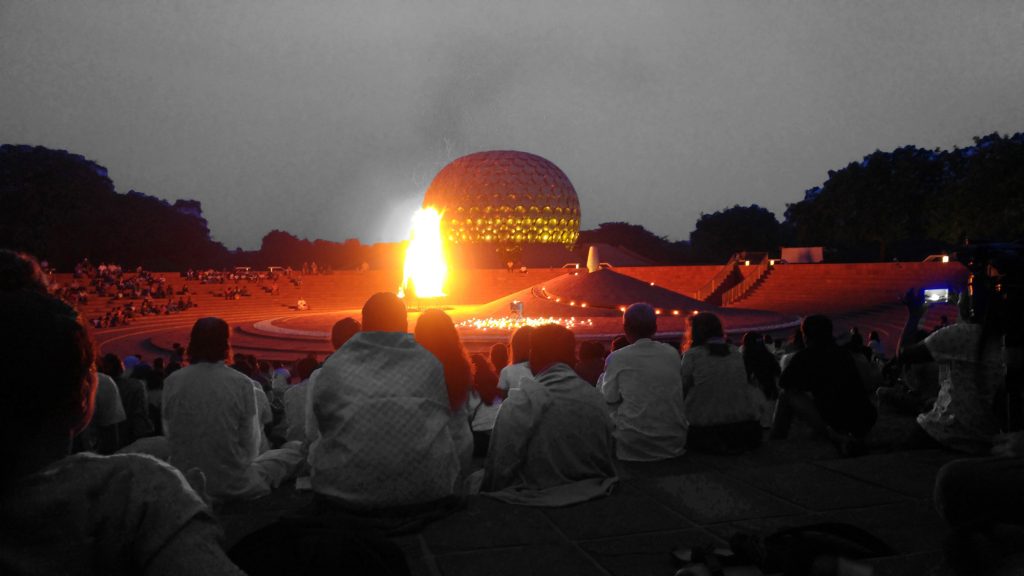
My reason for returning to India was research. As a part of my Creative Intelligence and Innovation degree, we had opportunities to apply for global studios. These were project-based course work, with assessments that had open criterion. For Auroville in particular, the assessments encouraged experimentation and creative exploration. Given my spiritual lens, I decided I wanted to research the belief systems of Auroville.
I managed to uncover my initial application to the global studio,
which gives you insights into my intentions in going in the first place.
Originally I was disturbed by the concept of Auroville, and I’ll be honest and admit parts of me are still skeptical. Primarily because I perceive the community to be like a cult. Upon testing my assumption with a friend who has been to this community, I realised this was very narrow-minded of me. I would thus like to witness the community in action to form a more accurate picture of the community.
I am interested in the values underpinning Auroville, and believe this will help me shape an understanding of how we interact with our values in new contexts. As I writer I love to explore other worlds, and need to expose myself to perspectives that are different from my own.
My last global studio revealed we learn to step up (as stewards moreso than leaders) when we feel a part of something bigger than ourselves, when we have a part to play in contributing to the co-creation of an experience. I envision my leadership skills being strengthened if I am allowed to shape and share the experience with others, in an environment of both learning and teaching, as we seek to understand the dynamics and desires that drive us.
As a writer, this opportunity screams of a chance to collect stories. I am fascinated by how humans function and flourish, and seek to understand the relationships, fears, hopes, beliefs that shape our social, emotional, physical, political, spiritual being. I would be particularly interested in creating a written piece to accompany my journey, a sort of poetic pilgrammage. This reflects my own epistemological way of seeing the world, and it would help me to make sense of the differences that emerge in the experiment.
From my personal perspective, the fact that there is a lack of religion yet presence of spirituality in Auroville is interesting. Having the strong Christian faith I have I would like to see how the society operates and if there is anything I perceive to be missing (e.g what does the presence of hope/faith/love look like in this space?). I would like to interrogate this model for the purpose of my own reflection and writing, to consider the power of believing in someone beyond yourself versus believing in something beyond beyond yourself.

As I noted at the time, my hesitation was the “cultish vibe” of the international village. Auroville has policies in place to prevent religion and money. As Auroville strives for human unity and harmony, the power structures found in traditional societies were written out of the code of conductfor this new society (now over fifty years old). In Auroville, you are required to renounce your religion. As well, all Aurovillians are given an aurocard with the same amount monthly, an economic system that seeks to avoid capitalist greed and consumption. After a few days exploring Kolkata, entering Auroville was disorienting. Despite my concerns, I was curious to spend a month there and observe whether belief systems were present.
To summarise my findings, for a place that renounced religion, the people certainly didn’t write-off spiritual beliefs. I suppose you could say that Auroville understands religion to be the formal, legalistic side of doctrinal belief. So, in doing away with religion, they were not opposed to the beliefs themselves, but the frameworks we create for belief. As with the economic system, and the barriers this can create in a society, marginalising the poor and rich; so too can belief systems be limited by religion, as laws and churches establish labels and categories for the Jew and Gentile, or the Theist and Atheist.
These frameworks, perhaps, get in the way. The human tendency to rationalise, categorise and make sense of systems; creating structures for the way we understand and operate in society, can divide. The notion of unity, then, is aspirational. To seek to human unity, when intrinsic in human nature is this tendency to divide and conquer, seems impossible. The intention behind a utopian society is fascinating, for it attempts to remove the frameworks, divisions, and impositions on human unity. All possible causes of division are discarded and almost despised. In this context, the utopian ideals of Auroville, while seeming to write-off religion, still allow for the very foundation of religion – beliefs – to remain.
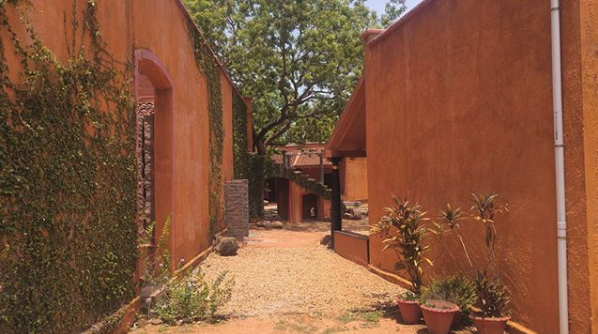
To believe in something, anything, is human nature.
To believe beliefs are best served apart from religion is, in itself, a belief.
To believe society should aspire to unity, is a belief.
To believe all humans should be treated equal, is a belief.
As I started to gather insights and observations of belief systems in Auroville, I also encountered ‘religion’ outside of the framing of ‘religion’. In other words, ‘beliefs’ without ‘labels’ and ‘limitations’; or ‘spirituality’ without a ‘systematic theology’. Some of the words scrawled in my watercolour journal, captured from conversations, include concepts of “divine anarchy”, “mystic philosophy”, “supernatural consciousness”.
All these musings came back to me, as I read Lee Strobel’s The Case for Christ. As I eagerly read through this journalists research and interviews with scholars to gather evidence and assess the case for Christ, I was stopped in my tracks at the end of part one. There, the Gospel for Thomas was in discussion, along with other ‘supporting’ gospels. Despite coming from a Christian family, my faith never really had an apologetics-edge until I moved to Sydney. When I started attending a university-church and encountering individuals in my university lecturers with strong opinions about Christianity, I started to defend my beliefs. Often, I never had answers that satisfied my perfectionist desire. Yet, I could hold conversations with friends who were of different faith and start to toy with the concepts and underlying values that shape our belief systems.
My first encounter with esoteric Christianity was in Auroville. I had stumbled across Gnostic beliefs in broader India, though I didn’t have a term for it at the time. In the Case for Christ, one scholar on the gospel of Thomas, states: “Everyone concedes that this gospel has been significantly influenced by Gnosticism, which was a religious movement in the second, third, and fourth centuries that supposedly had secret insights, knowledge or revelations that would allow people to know the key to the universe. Salvation was by what you knew – gnosis is Greek for ‘know,'”
When I read this scholars words, my memory was triggered. I still vividly remember the night I met a Gnostic in Auroville. At the time, while I was curious, I was also confused. We had left the township of Auroville to gather at an outdoor Italian restaurant. The moths swarmed in the light when we rode our bicycles through the dark night and dusty streets. I ended up down one side of the table with the guests. All my classmates confided in one another, while a curious evening unfolded between me and my new friend.

John was a man with a beard, who I remember being very switched on yet subdued with depth. The subject of spirituality had surfaced when I noted at our greeting that he had a biblical name, “like the gospel of John” … sometimes things slip out my mouth before I think them through, and this was one of those times. Thankfully this stranger did not write me off, though perhaps he had thought it strange I made this immediate connection. He couldn’t have known that I was researching belief systems, so it was in the forefront of my mind.
He liked my comment, because he told me:
“I’m a Christian too, an esoteric Christian”.
In my naive “bubble” of Christian upbringing in the West, I had no idea what an esoteric Christian was. To be honest, I was just excited to encounter someone who wasn’t renouncing religion entirely at that stage in the trip.
As dusk greeted the other side of the moon, we entered into a foreign galaxy of thought. I very quickly discovered that this man wanted me to experience the esoteric Christianity he believed in, while I wanted him to encounter the Christianity I believed in.
We begun by discussing the gospel of John; he believed it, and found it curious even, because of the claim of the word made flesh. For him, this revelation meant that reading the gospel of John enabled him to encounter Jesus, the word made flesh, and to therefore be able to witness a manifestation of universal truth.
In his esoteric thought, he believed in different ways of looking at knowledge. There is the exoteric, the obvious; the mesenteric, the expert; theosophy, the wisdom of gods; antroposophy, the wisdom of humans. He gave me a list of names and resources, “the secret history of the world”, “m booth”, “martin barber”, “rudolf steiner”, “the fifth gospel”.
In this foreign galaxy of thought, John continued to point to the limitations of Christianity. He spoke of perceiving other worlds through clairvoyanceand the ability to see things beyond the physical, to enter other worlds where you can develop your senses and go beyond your physical sense. He also described entering into dream stances, adamant on the secret ways of achieving spiritual awakening in your sleep.
The entire time, I couldn’t help but see the gnostic gaps in his beliefs.
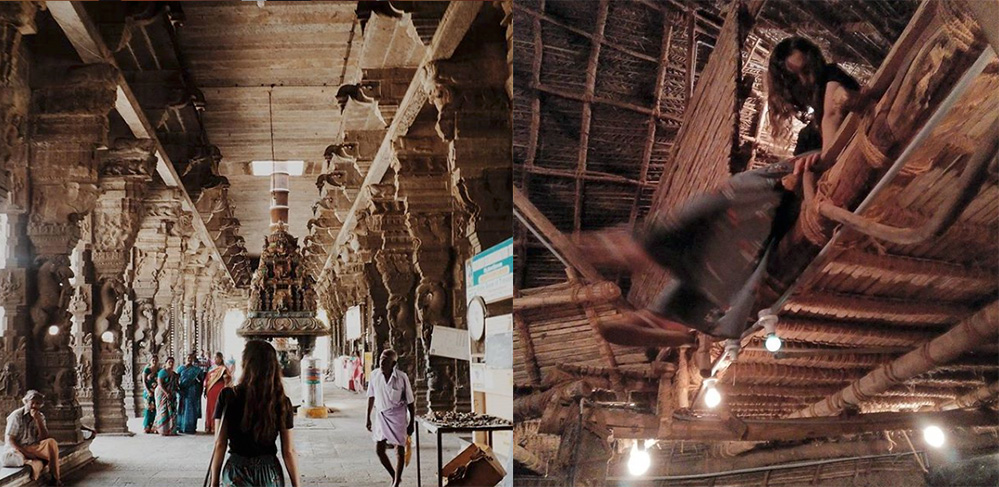
Eastern philosophy places significant emphasis on the mind, and the ability to achieve divine consciousness, to create your own reality. Particularly, the esoteric belief system relies heavily on subjective experience, while traditional, monotheistic Christianity acknowledges God is objective, omniscient, omnipotent. God has to be an objective reality if he is to have meaning beyond our imagination. Despite my love of all things imaginative, I see how this application cannot extend to God if God is to be real.
For the gnostic to claim their ability to acquire secret knowledge, to reach revelation and dream visions through their own mental faculties, to discover a religious imagination within themselves is . . .
creative, but not consistent with Christianity
Where esoteric Christianity starts to contradict the teaching of Christ, there is cause for critique. The esoteric Christian proposes that some spiritual doctrines of Christianity can only be known by those who pass certain rites within the religion. The esoteric elevates knowledge and spiritual evolution; and the gnostic believes their salvation comes from Jesus, but that it is not a salvation from sin, but a salvation from the ignorance of sin.
Interestingly, the apostles of Jesus faced this very belief system in the early Church. Paul writes to Timothy, to “avoid the irreverent babble and contradictions of what is falsely called ‘knowledge,’ for by professing it some have swerved from the faith.” (1 Timothy 6:20-21).
Jude writes, “yet in like manner these people also, relying on their dreams, defile the flesh, reject authority, and blaspheme the glorious ones.”(1:8). Paul and Timothy wrote to the Church in Colossae, “see to it that no one takes you captive by philosophy and empty deceit, according to human tradition, according to the elemental spirits of the world, and not according to Christ.”(Colossians 2:8).
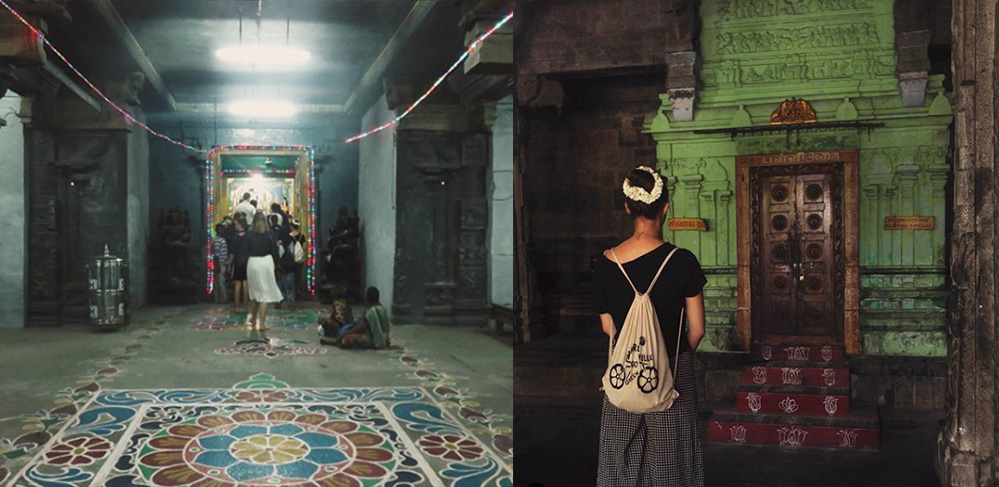
Even the prophets warned against superstitious beliefs. In Isaiah, God removed His presence from His people because they were absorbing the ways of their neighbours in the East and West, practicing divination, which tries to access the divine realm through religious rituals, seeking to foretell the future and ward off evil. In chapter two, versus six onwards we read of God’s people being “full of things from the East”, with “lofty pride” filling man, as he thinks that he can access and achieve the divine of his own right.
In this passage of Isaiah we see the judgement against human arrogance, and in the Easter message, we hear how the justice and redemption of man is only possible through the righteous death and resurrection of Jesus. Maybe this is what is foreshadowed here in Isaiah, where, “before the terror of the Lord, and from the splendour of his majesty … he rises to terrify the earth”(2: 10, 19, 21). The scriptures are clear: “Stop regarding man in whose nostrils is breath, for what account is he?”(2:22).
I am no apologetic, so I will not seek to deconstruct all of the gnostic gaps here. However, I wanted to highlight some of my concerns with the conceptions of Jesus as presented by Gnostics. The Gnostic paints Jesus as an Illuminator, one who serves as a cosmic catalyst for others’ awakening; to me this comes across as a consumeristic Christianity, using Jesus as a means of ones own spiritual success and understanding.
The Scriptures are clear in their portrayal of the supremacy of Christ (Colossians 1:15-23), as God’s fullness of God dwells in him (19). There is no other supremacy, no spiritual awakening, no divinity, no dream state that can enable or catalyse the revelation that is found in Christ.
Indeed, there are spiritual blessings to those who are in Christ (Ephesians 1). For as God’s fullness dwells in Christ (Col.1:19), when we dwell in him, we are blessed with “every spiritual blessing in the heavenly places” (Eph.1:3). The emphasis in this passage, repeated again and again, is “in him”; to remain, to dwell, to abide – IN HIM.
Apart from Christ, what is there to be known about God?
Apart from Christ, what wisdom and insight into the will and purposes of God can be found?
Apart from Christ, what truth and salvation and spirit can be received?

“In him we have redemption through his blood, the forgiveness of our trespasses, according to the riches of his grace,which he lavished upon us, in all wisdom and insightmaking known to us the mystery of his will,according to his purpose, which he set forth in Christ as a plan for the fullness of time, to unite all things in him, things in heaven and things on earth. In him we have obtained an inheritance, having been predestined according to the purpose of him who works all things according to the counsel of his will,so that we who were the first to hope in Christ might be to the praise of his glory. In him you also, when you heard the word of truth, the gospel of your salvation, and believed in him,were sealed with the promised Holy Spirit,who is the guarantee of our inheritance until we acquire possession of it, to the praise of his glory.” (Eph.1:7-14).
In the book of Hebrews we are provided additional confirmation of the supremacy of Christ, for it is said: “On many past occasions and in many different ways, God spoke to our fathers through the prophets.But in these last days He has spoken to us by His Son,whom He appointed heir of all things, and through whom He made the universe.The Son is the radiance of God’s glory and the exact representation of His nature, upholding all things by His powerful word. After He had provided purification for sins, He sat down at the right hand of the Majesty on high.So He became as far superior to the angels as the name He has inherited is excellent beyond theirs.” (1:1-4). Far superior than angels… that is supreme!!!
If you’re interested in reading more verses from the Bible that speak to Gnosticism you can look here. There is also a Christian Apologetics site that has posted on the Persistence of Gnosticism. Although it may be three years since I met John, I still remember that galaxy of thought. I am thankful for our meeting, because he introduced me to Esoteric Christianity.

To end, I will finish with some words from Christian Apologetics:
what sets Christianity apart from Gnosticism is that:
in Christ, the supreme character of the once-hidden God
has now been definitively and exhaustively revealed,
so much so that Jesus could tell his followers
that those who had seen him had seen his Father.
there is no God that remains hidden from plain sight
or reserved for an elite, enlightened group of people.
instead, Christ has made supreme knowledge of God
available in his life, death and resurrection,
and that knowledge was written and recounted
in the Christian Scriptures that testify to Christ.
in 2 Corinthians 4:4-6
Paul writes that the message of Christ,
not ourselves, is supreme:
“The god of this age has blinded the minds of unbelievers, so that they cannot see the light of the gospel that displays the glory of Christ, who is the image of God. For what we preach is not ourselves, but Jesus Christ as Lord, and ourselves as your servants for Jesus’ sake. For God, who said, ‘Let light shine out of darkness,’ made his light shine in our hearts to give us the light of the knowledge of God’s glory displayed in the face of Christ.”
you can enter the rabbit hole of my previous blogs on Auroville here:
> can my imagination live in a utopia
> temple of the mother
> the soul of auroville
> watercolour words

